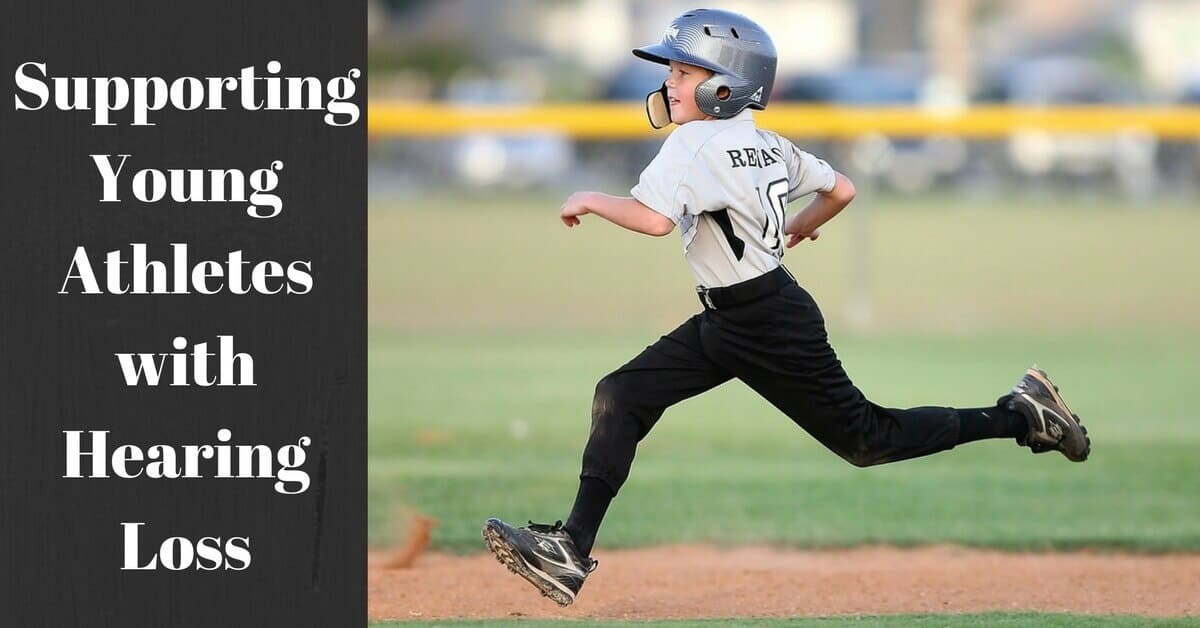One in ten people in the United States have some form of hearing loss. The most common form of hearing loss tends to be in older individuals, as our hearing systems naturally deteriorate with the passage of time. However, hearing loss can be a result of genetics, illness, medications or injury. These types of hearing loss know no age limit. Every facet of our culture likely houses a young adult with hearing loss and athletics is just one avenue in which boundaries are being broken down.
A place for differences in athletics
Despite public outreach in hearing loss education, there still remains significant obstacles to hearing impaired athletes. The world was built for individuals with healthy hearing and attempting to make space for other needs and ways of being within those structures is still a working model. One of the hallmarks of early sporting education is conformity. This might sound like a loaded word, but it is really more nuanced. Honing athletic skills and techniques require attention to detail and developing proficiency in established methods. Learning how to pitch a perfect strike means practicing existing techniques over and over and over again until they become muscle memory. Individuality is usually tempered until after a strong grasp of the fundamentals is acquired.
Make space for more
However, we can make room for new ways. This requires a bit more fortitude, but making your hearing loss known and asking for needs to be met is one way to open up space for differences in athletics. While we might have always assumed that a quarterback has healthy hearing, perhaps that isn’t the case. Of course, we’ll never know until we try it out.
Developing Disclosure Strategies
It has been documented that hearing-impaired college students with a handy and strong disclosure strategy tend to perform better than college students who do not disclose their hearing disability early on. We could easily translate this finding into strategies of supporting young athletes with hearing loss. Mentors, coaches, parents and counselors can work with these young people to create appropriate disclosure strategies and provide the emotional support that lets them then share their hearing loss with a larger audience.
Of course, disclosure is always a personal decision that is ultimately up to the individual. If hearing loss feels like a private issue, don’t feel obligated to run around telling everyone your business. These are simply statistics that provide a better understanding of options. These are ways that have worked very successfully to some, but do not necessarily apply in each situation.
If disclosure feels too personal, the young athlete could instead make it a point to have one or two trusted confidents aware of their hearing loss that they can share struggles and triumphs with. They don’t have to be teammates or involved in the specific athletic activity, either.
Support provides a strong foundation
Support can come from many different directions. Try directing young athletes towards a support group or helping them reach out to a community that can put them in touch with someone who faces similar challenges. They can have a safe space to swap tips and strategies and also just function as sounding boards for one another.
Get active with hearing loss advocates
Help young athletes with hearing loss get more involved with advocacy groups working to increase the visibility of hearing impairment. At the very least, they’ll learn that people are out there fighting tirelessly for their rights.
Former Miss America Heather Whitestone helped launch a nationwide public awareness campaign to identify early hearing loss. As a ballet dancer, she also shared her struggles with having to break through previous preconceptions in order to advance in her athletics. While there have been hearing impaired athletes before her, she functioned as a role model for many young people with hearing loss with similar dreams.
Many voices make a harmony
These young hearing-impaired athletes don’t have to become a poster child for the cause, but getting the word out about their experiences as an athlete with hearing loss could be invaluable. Educating the sporting community they’re involved in will help open up dialogue with teammates and other athletes, not to mention creating more space for other hearing impaired athletes to flourish in the sport. Diversity in any arena is a boon and many voices and experiences only help to enliven and enrich our lives.
It is important to seek treatment for hearing loss as soon as possible. Visit us at Desert Valley Audiology for a hearing test and consultation.

